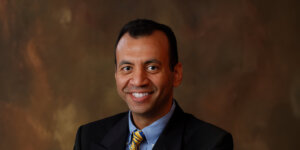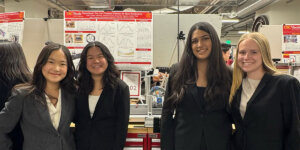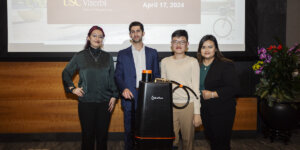
Alumna and serial entrepreneur Thuy Truong returned to her alma mater to start USC’s first Hack for Health Hackathon Photo / Peter Shin
One of the side effects of treating lung cancer is a sore mouth, which should make it difficult to speak. You wouldn’t know this listening to serial startup queen and USC Viterbi alumna Thuy Truong. Speaking at a million miles a minute in flawless non-native English, Truong doesn’t skip a beat, not over describing a decade of making and cashing in on multimillion dollar enterprises, and certainly not over cancer.
Truong moved back to her home country of Vietnam after graduating from the Viterbi Department of Computer Science with a B.S. in computer science in 2009. After starting Vietnam’s first frozen yogurt company, Parallel Frozen Yogurt, first mobile development hackathon and a number of other startups, she moved to Silicon Valley. Today, lung cancer and all, Truong has hosted USC’s first ever Hack for Health.
“A project that we’re working on through the hackathon is a mobile app to track and mitigate some of the side effects of cancer and its treatments,” said Truong.
“One side effect that I’ve had is a skin rash, so if I add to the app that cold water irritates my skin less than warm water, other people fighting lung cancer can know to use cold water as well.”
Hack for Health began as a collaboration between Truong and her physician at the USC Norris Comprehensive Cancer Center, Dr. Jorge Nieva.
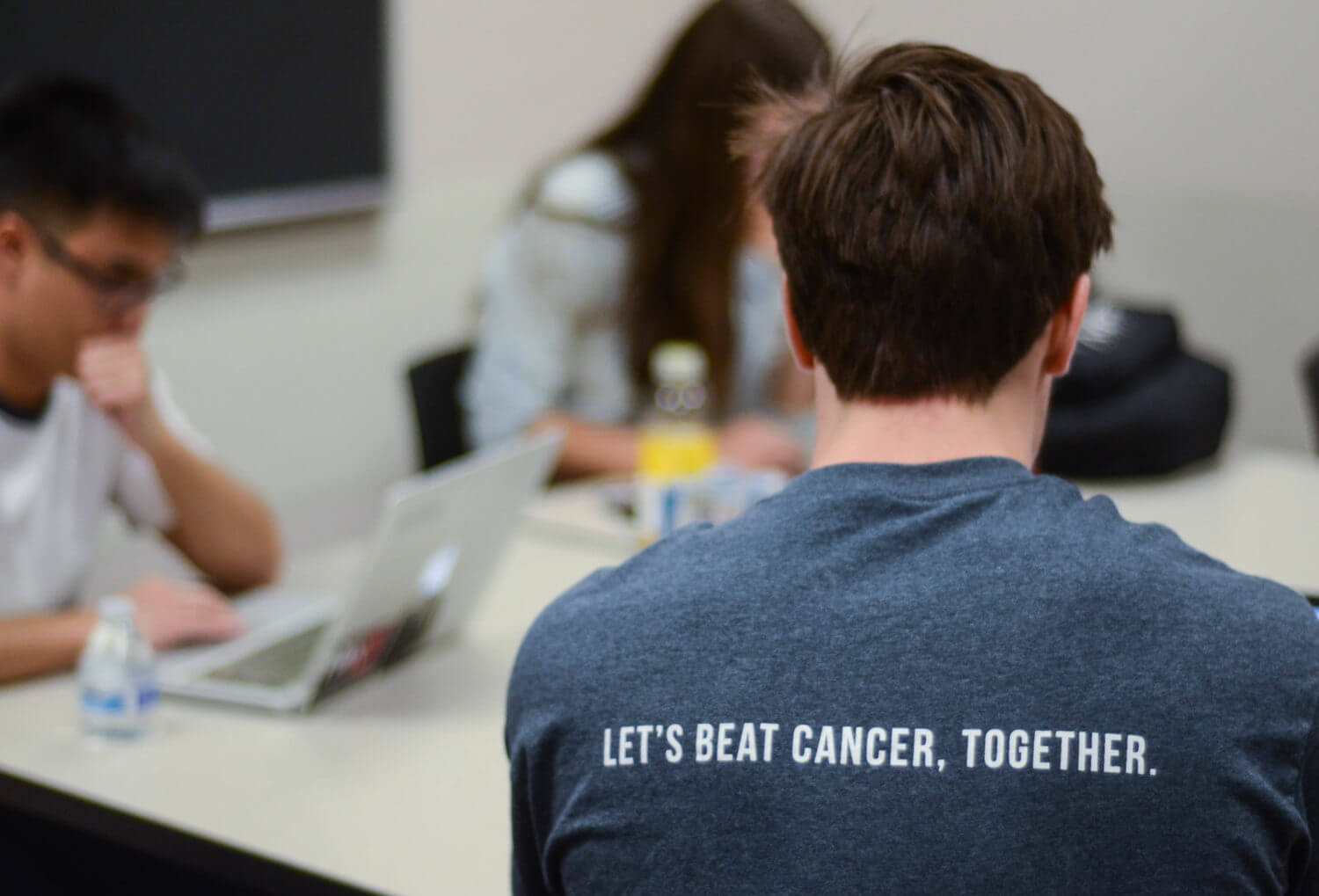
Students develop apps aimed at alleviating cancer treatment symptoms in USC’s first Hack for Health Hackathon Photo / Peter Shin
“I moved back to Los Angeles from Silicon Valley to be treated at USC, and I started talking to Dr. Nieva about tracking my energy patterns throughout my treatment using my Fitbit,” said Truong. “He told me how at USC Viterbi, they actually were working on their own technologies for the same purpose.”
Nieva became eager to work more with Truong on developing technology for cancer management.
“Thuy understands the tech and the business aspects of viable cancer solutions and programs at the same time,” said Nieva. “She definitely brings a passion that only an advocate and cancer survivor can bring to the table.”
Truong, who had organized some of the first hackathons for mobile development in her native Vietnam, saw a greater potential to integrate the entire USC community.
“I decided to come in and turn two projects in two years into dozens over a 48 hour period,” said Truong. “And we’d include everyone, from patients to designers to engineers.”
While this may sound like a tremendous feat for someone battling a life threatening condition, it’s worth noting that Truong still hikes every week and fully intends on returning to camping every weekend and resuming cross-continental road trips after she beats lung cancer. It’s ultimately unsurprising that Hack for Health, put on in conjunction with the USC Iovine and Young Academy, emerged as an overwhelming success.
Over the course of the very sleepless weekend from April 7 through the 9th, dozens of undergraduates, graduate students, engineers and software designers took projects from conception to reality. Along the way, White House Presidential Innovation Fellow Kara DeFrias, patient advocate AnneMarie Ciccarella and other notable experts gave keynote speeches.
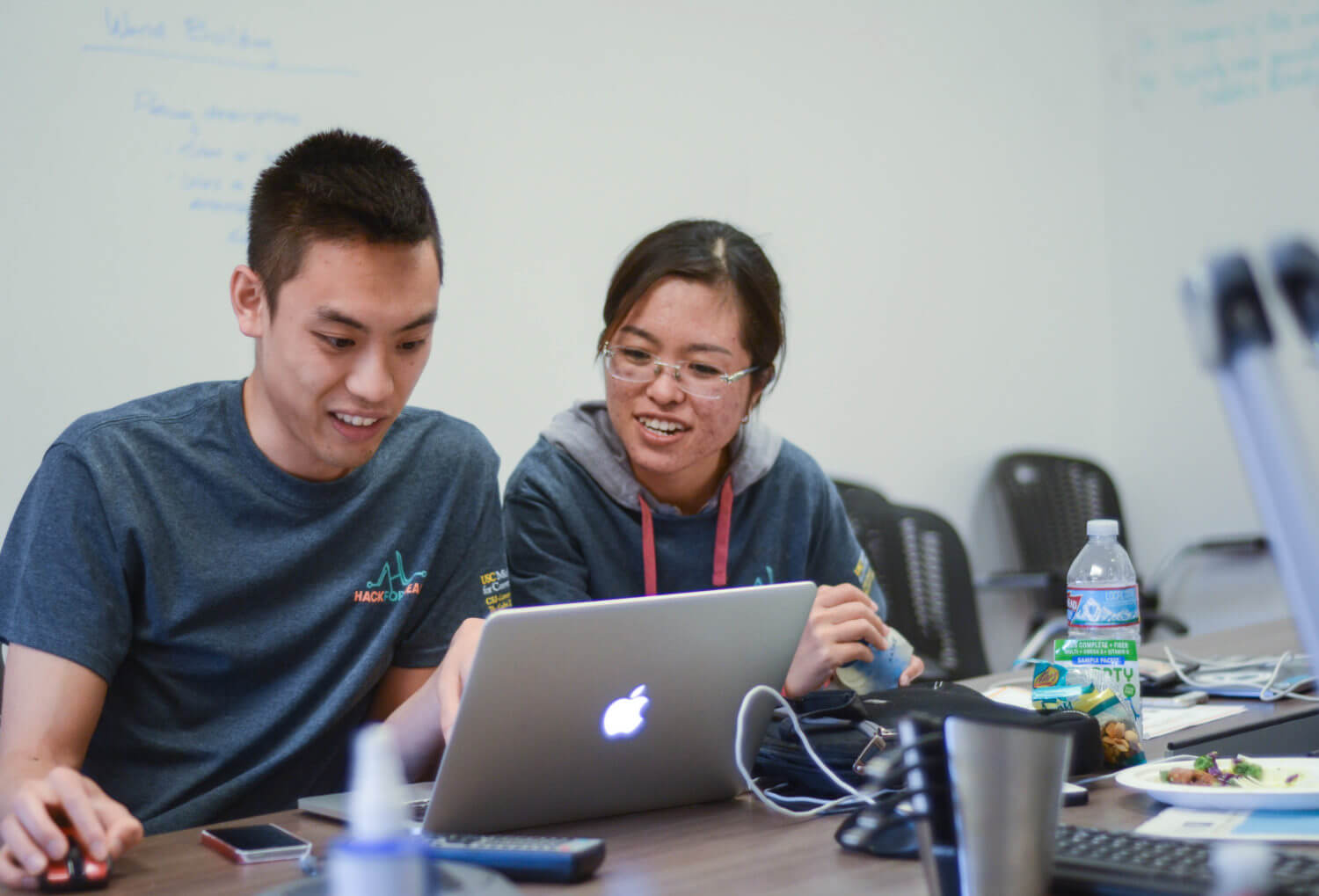
The hackathon teams faced pointed questioning from the panel of judges, which included Nieva, DeFrias and Peter Kuhn, director of USC’s Kuhn Lab. “Storyline,” the app incorporating photo recognition using computer vision to keep track of prescribed medications, was put to the test, with the developers actually demonstrating the cross referencing capabilities.
By holding up a pill bottle to a web cam, Storyline pulls up the medication’s FDA listing and its side effects. It then keeps track of a timeline of a user’s prescriptions, so causation of negative side effects can be determined.
Inspired by an actual cancer patient who had been prescribed so many medications that she lost track of which combinations created which side effects, Storyline’s development will continue into the future to integrate with the international database, CancerBase, compile side effect ratings and customizing individual profiles.
Storyline ultimately won Hack for Health’s grand prize, though Nieva remains confident that plenty of the projects will continue to fruition.
“We were looking for something that looked like it could really make an input in the lives of cancer patients,” said Nieva. “The Storyline team seemed to be able to build something that was not straightforward, and they seemed driven to continue.”
“Hopefully these apps will help people dealing with side effects and medications, because cancer is a journey without a clear road paved ahead,” said Truong.
“When God tells a person, ‘you have cancer,’ you can’t change the diagnosis itself. It affects everyone, rich or poor, good or bad, equally. But even if the battle is inevitable, we can learn how to master its management.”
Truong was also the subject in the feature documentary film “She Started It,” directed by Nora Poggi and Insiyah Saeed. The film premiered at Mill Valley Film Festival in October, 2016 and has since earned worldwide acclaim.
Published on April 19th, 2017
Last updated on March 29th, 2025




